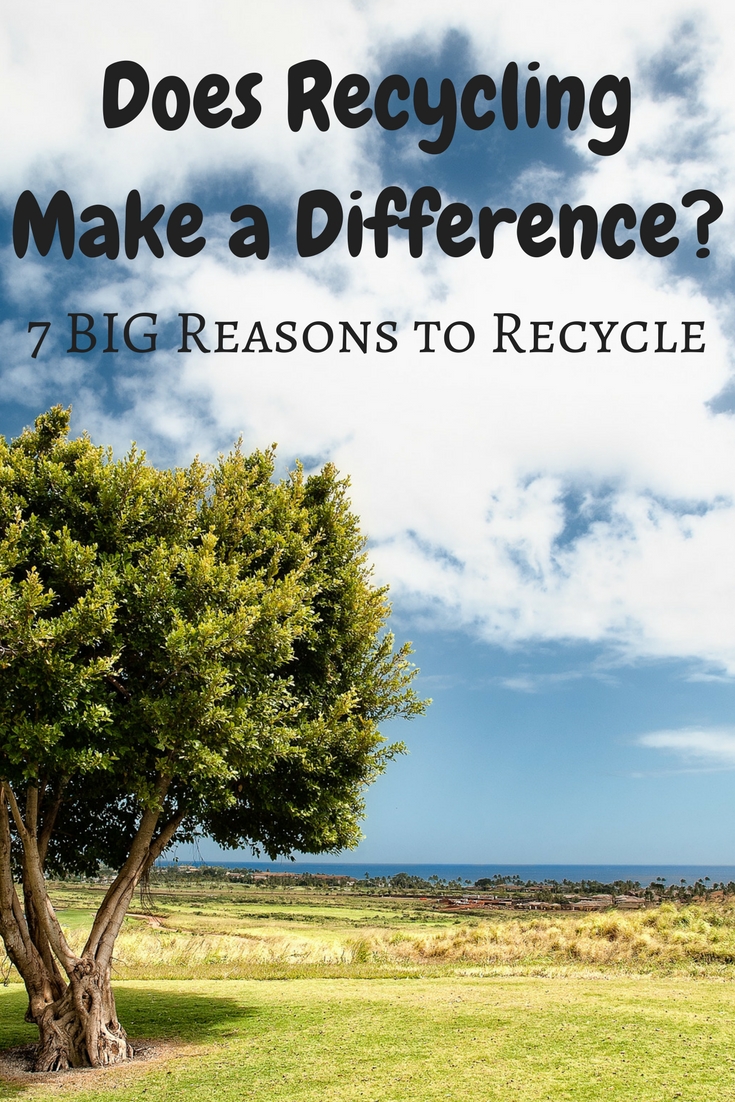Recycling is becoming all the rage these days. Green this and green that. Think about the environment. No more chemicals. Recycled materials for everything from what things are packaged in to what our homes are made up of. The symbol for recycling can be found on so many different things and yet here we are, still dealing with global warming. So does recycling really make a difference? Or is it all just the latest fad? Let’s take a look at what recycling does for the environment.

- Recycling one aluminum can saves enough energy to keep a 100-watt light bulb burning for up to four hours or can even run your television for up to three hours. The energy it takes to create an aluminum can with new materials will create 20 aluminum cans from recycled materials. You just need more resources and energy to make something new.
- There are social benefits to recycling. Many non-profit organizations have drives to raise money for things. Habitat for Humanity for example has a program called Cans for Humanity which raises money to help Habitat for Humanity make quality affordable housing for low-income families. They have locations all around the nation for people to drop off cans.
- Glass is the easiest and most frequently recycled material. For every 20 glass bottles recycled you will save two pounds of carbon emissions. For every ton of glass recycled that’s 700 pounds of saved carbon emissions or the equivalent of line drying your laundry for six months.
- The energy savings we see from recycling reduce the greenhouse gas emissions which in turn affect climate change. If we save 18 million tons of CO2 by recycling in a year, then that would be the equivalent of taking five million cars off the road.
- On average a person recycles 1.5 pounds of municipal solid waste (MSW) a day. That’s a savings of over 2.5 pounds of carbon emissions from one person a day. For ever ton of MSW waste recycled, that’s 2.27 metric tons of carbon dioxide emissions.
- If we were to recycle about 50 percent of our waste per day or just over two pounds, then on average per family we would save 2400 pounds of carbon dioxide emissions per year.
- Everything you recycle instead of dump in the dumpster saves room in landfills. Large amounts of methane gas are produced at landfills. So every item you send to a landfill instead of recycling just produces more methane gas.
Recycling definitely has its benefits for the environment. However, it’s not all we should be doing. We need to be much more conscientious consumers. This includes buying products which save energy and buying products which do what they can for the environment. Buy green power for your home. Be aware of what you’re doing when you travel and think about how you’re traveling. Eat green foods.
Doing all of this will reduce your carbon footprint even more. Recycling is a great start to a life of being green and helping to save the planet.

My wife and I are trying to be more green, so thanks for sharing this. I like your point about how non-profits will sometimes collect cans. We will have to start saving ours so we can donate them and avoid being wasteful.
I think a lot of people toss their cans and bottles in the trash without thinking twice. If we could all get used to recycling them, it would make a big difference!